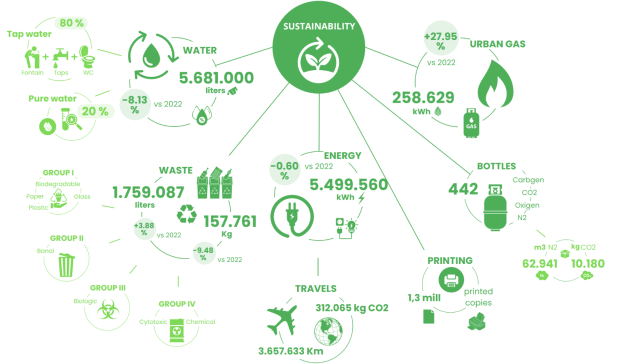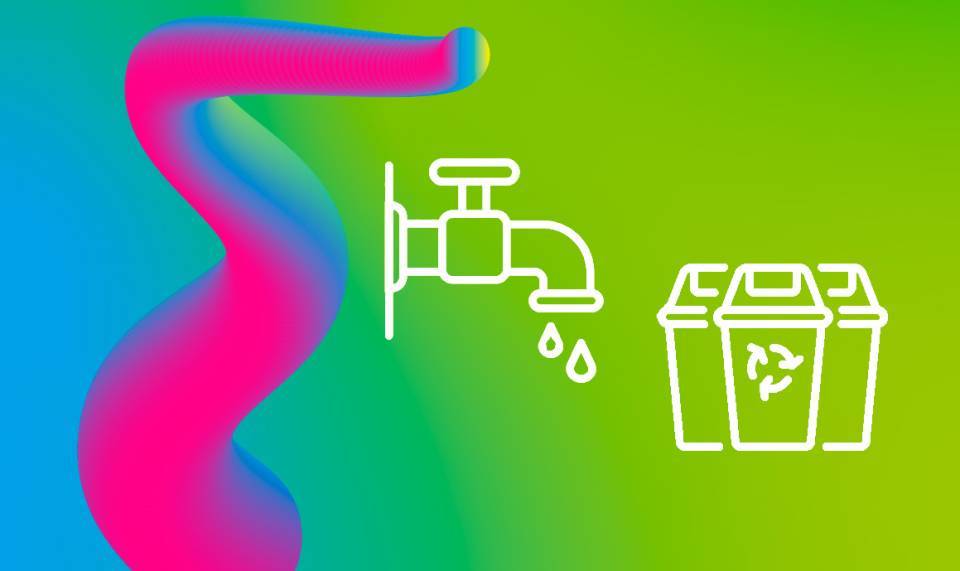Research is an activity with a significant environmental impact. For instance, many single-use items involved produce tonnes of plastic waste. Energy-intensive machinery and equipment are required to conduct experiments and to store and analyse the results. Researchers also do a lot of travelling to attend conferences and congresses.
Nearly 5.5 million kWh of energy are consumed at IDIBAPS per year, more than the energy used in 1,500 homes. IDIBAPS also consumes over 5.6 million litres of water, which is equivalent to two Olympic swimming pools. The institution’s printers consume 1.3 million sheets of paper. In all, more than 157,000 kilos of waste are produced per year, reaching a total volume of 1,759,088 litres. Finally, it is estimated that IDIBAPS staff travel over 3.6 million kilometres per year, emitting more than 310,000 kilos of CO2.
Everyone’s cooperation is important if we are to lower these levels of consumption. Each drop of water saved, each page that we do not print and each item of waste that is not produced or reused counts towards that goal. The sum of many little actions can end up having an enormous impact, especially in organisations as large as IDIBAPS.
IDIBAPS is committed to promoting more sustainable practices to reduce its activities’ impact on the environment. To that end, it launched a Committee on Sustainability in mid-2022. The committee drafted a manual of sustainable good practices, which you can read by clicking here. It has also studied and proposed actions that we can take in the workplace to lessen the impact made by research. You can read about some of them by clicking here.
The most recent actions include the centralisation of deliveries by our suppliers to cut back on the number of trips and several improvements made in water management, such as the posting of new signage detailing the different types of water in the taps of the CEK laboratories, the installation of new aerators in the running water taps in the bathrooms, adjustments to water flush regulation in the CEK toilets and the renovation of the CEK’s pure water equipment with more efficient models.
Other initiatives are under way, such as the start of a study on energy consumption at IDIBAPS and a project to install new solar panels on the CEK building.
If you would like to cooperate with the Committee on Sustainability and/or submit new proposals, please write to: sustainability@recerca.clinic.cat.
IDIBAPS’ consumption in figures, 2023:


